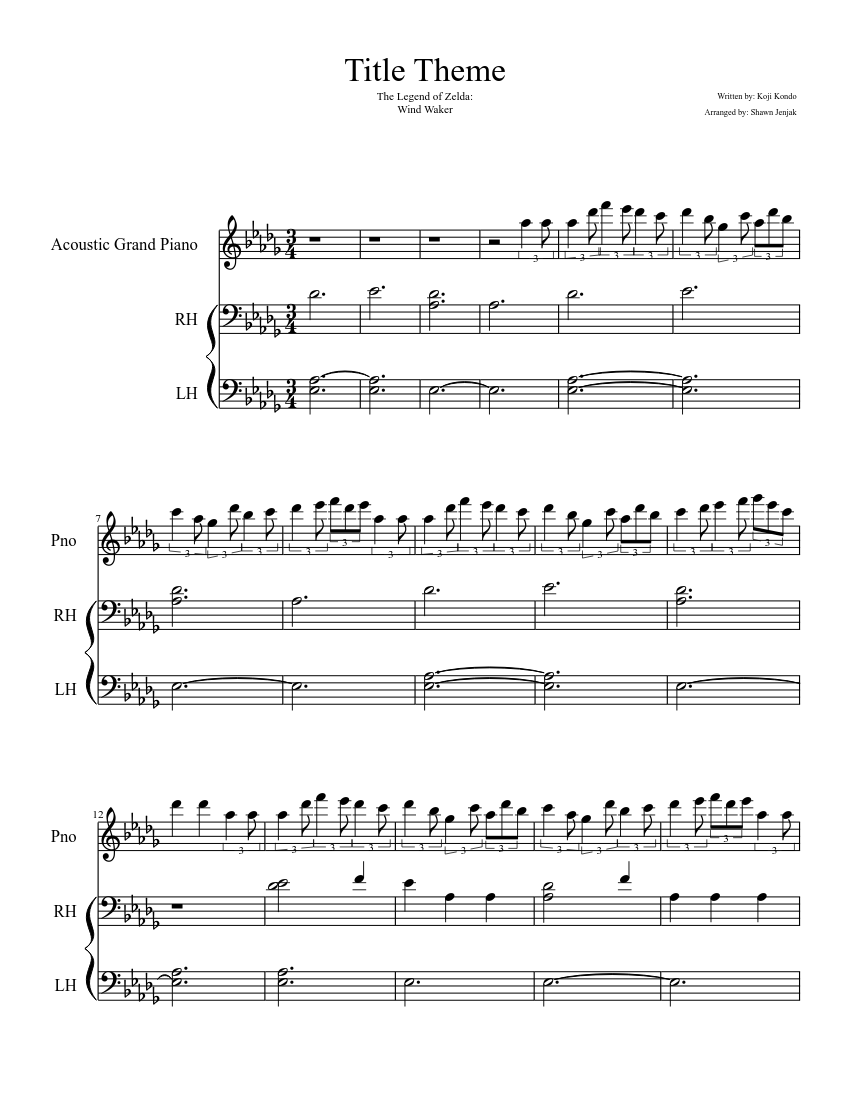
These tracks are not the most comforting tracks to listen to, but I do not consider "cinema-style" tracks in a game soundtrack a bad thing at all.

These tracks mix in various themes or sound like they could come from a motion picture soundtrack album. There are many tracks on here that are specifically written for the cinema cutscenes in the game. "Sealed Hyrule Castle" starts out with a very brief wind-like instrument (which sounds like it's being played through radiowaves), but then after a brief pause, we hear these loud door-closing sound effects in a ship's hold that repeat a few more times. "The Forest of Outset Island" is just a two note mallet instrument playing continuously with two basson-like notes popping in about every five beats or so. Probably the most bizarre tracks on the entire album are the ones that are "brief, barely a theme" songs. and the vocals sound crisp and authentic (in an otherwise repetitive song). "Jabun" really surprised me it's Jabu-Jabu's theme from Ocarina of Time. The chorus vocals waver from being authentic to sounding like they were drived from a synthesizer. The overall score has a Celtic, sea-going adventurous feel similar to Disney's Shipwrecked, with occasional dark, menacing songs and breathtaking choral treatments. Zelda fans should be pleased with the amount of old tunes to accompany Link's latest adventure, but may have divided opinions about the rest of the tracks. This may shock Zelda purists, but I soon grew accustomed to it.

It sounds more lively, peppy, and bouncy than it ever has. I should also mention that "Kakariko Village" is resurrected in the most unusual manner I've ever heard. The results are nothing less than gorgeous. Probably the most impressive renditions of this theme are a choral hint via the last track on disc 1, and the very last track on the album, which mixes not just the Overworld theme but the revamped version from Ocarina of Time. And the classic Overworld theme? Don't worry, it's on the soundtrack - hinted on more than one track. The house, shop, treasure chest, morning, and item catch fanfares from Ocarina of Time are all included, as well as the themes for Ganon, Princess Zelda, the fairy fountain (the best version being a glorious choral feast on disc 2 track 20), and Hyrule Castle from A Link to the Past. First of all, if you're a fan of the scores for Ocarina of Time and A Link to the Past, prepare to be in store for a feast - many of the familiar themes come from these two titles. Sound issues aside, is the score for the ninth entry in the Zelda franchise worthy of its title? Probably the best way to answer this question is to take the soundtrack apart in pieces, rating it first by how many classic Zelda themes have made it onto the album and how the other new compositions hold. There are some tracks which occasionally sound every bit as flat as Mario Story for the N64, but somehow composers Kenta Nagata (Mario KSnowboarding), Hajime Wakai (Star Fox 64, Pikmin), Toru Minegishi (The Legend of Zelda: Majora's Mask) and of course the legendary (pun!) Koji Kondo manage to avoid making the tracks sound intolerable.

The score still uses MIDI-sounding instruments rather than a full-fledged orchestra, but the overall quality of the sound is much better than the N64 scores.

Those who have disliked Koji Kondo's N64 Zelda scores because of the sound system's limited capabilities needn't worry about the same problem applying with the soundtrack for The Legend of Zelda: The Wind Waker. Reviews Beautiful, bizarre, and unconventional, yet worthy of the 'legendary' game series. Detailed release notes and credits at VGMdb.Released by Scitron Discs (catalog no.The Miracle Stone Shows One's True Nature (:34).


 0 kommentar(er)
0 kommentar(er)
